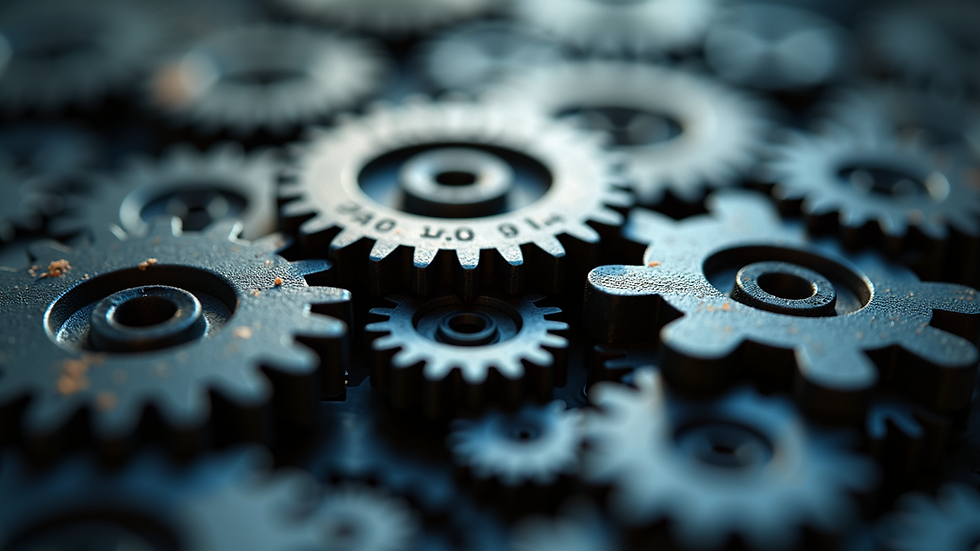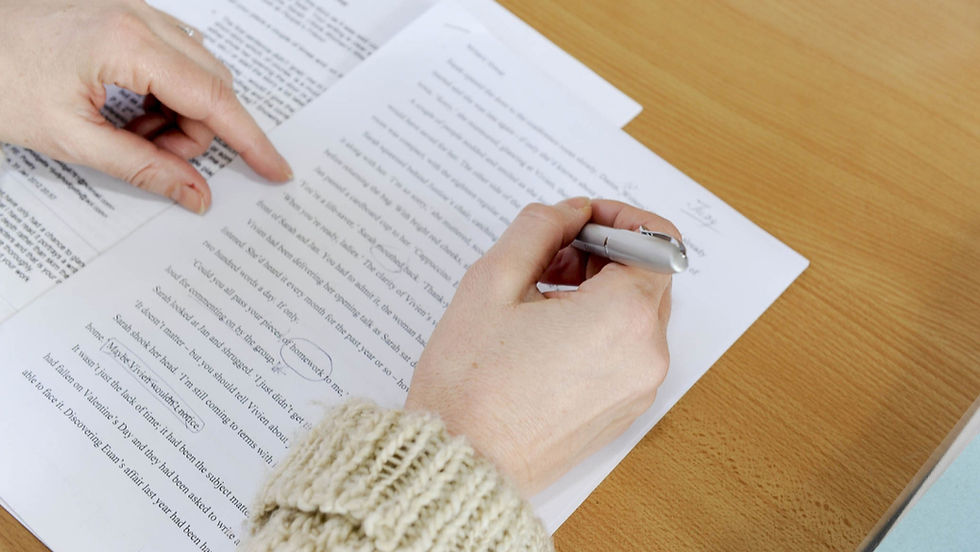Will AI Replace Humans In The Workplace?
- Catherine
- May 1, 2025
- 4 min read
In recent years, Artificial Intelligence (AI) has become a familiar force in many sectors, stirring both excitement and concern among workers worldwide. The central question is: can AI really take over human roles at work? As we explore this commonly seen discussion, it is crucial to examine arguments from both sides of the debate.
The Case for AI Replacement
Efficiency and Productivity
One of the strongest arguments for AI's potential to replace humans lies in its ability to enhance efficiency. For example, AI systems in manufacturing can analyse production lines in real-time, identifying bottlenecks and suggesting optimisations. Companies like Tesla and Amazon have reported up to a 30% increase in productivity through such innovations. This efficiency can lead to significant financial savings, allowing organizations to redirect resources toward growth or employee development.
Consistency and Accuracy
A key advantage of AI is its capacity for consistency and accuracy. Unlike humans, machines do not tire or get distracted. In fields like data entry and quality assurance, AI can achieve error rates as low as 0.01%, while human error rates can average 1-5%. For instance, in the pharmaceutical industry, using AI for drug testing has resulted in fewer mistakes that could cost millions or even endanger lives, illustrating its reliability in critical tasks.
Job Automation
Many sectors have already embraced AI solutions that automate roles once filled by humans. Customer service chatbots can handle common inquiries faster than human agents, reducing wait times by an average of 70%. Self-checkout kiosks in grocery stores symbolize this trend, saving labor costs while offering convenience. Such automation may reinforce the belief that numerous jobs will disappear, fundamentally altering labor markets and the nature of work.
The Case Against AI Replacement
Human Creativity and Emotional Intelligence
Although AI excels at repetitive tasks, it still lacks essential human traits like creativity and emotional intelligence. These qualities are vital in creative fields, including art and literature, where unique perspectives and emotional insight are invaluable. For instance, AI-generated art may mimic styles, but it often lacks the emotional depth found in works created by human artists. A 2022 survey revealed that 85% of participants preferred human-created art because it resonates on a personal level.
Complex Problem-Solving
Humans have a unique skill set for handling complex problems through nuanced thinking. In professions like healthcare, critical decision-making often involves evaluating ethical implications or understanding patient emotions. For example, a doctor must analyse medical data, patient history, and emotional context to provide appropriate care. AI can assist with data analysis but ultimately requires the human touch to make informed decisions that consider diverse perspectives.
Adaptability and Flexibility
Humans excel at adapting to changing conditions and unexpected challenges. In a dynamic work environment, the ability to pivot quickly is crucial. For example, during the COVID-19 pandemic, human workers across various sectors quickly learned to implement remote work strategies. While AI can learn patterns, it does not possess the profound level of experience-based flexibility and adaptability that humans bring to the table.
Embracing AI and Human Skills Together
Collaboration Over Replacement
Rather than viewing AI solely as a threat, we should see it as an opportunity for collaboration. Many experts argue that AI can enhance human skills instead of replacing them. For example, AI tools can help financial analysts predict market trends, allowing them to focus on strategy and creative problem-solving. In this environment, leveraging AI’s strengths can lead to more effective outcomes.
Upskilling and Reskilling
As the nature of work evolves, the importance of upskilling and reskilling becomes clear. Education must adapt to prepare individuals for a workforce increasingly intertwined with AI. Developing skills in critical thinking and innovative problem-solving can help workers remain relevant. For instance, companies that invest in employee training programs see an 11% increase in productivity, proving that continuous learning is essential.

Final Thoughts
The discussion about AI's capacity to replace humans at work is complex and ongoing. While AI offers remarkable efficiency and accuracy, it still falls short in areas like creativity and emotional understanding, which are uniquely human.
Instead of fearing obsolescence, individuals can embrace change and develop new skills to remain valuable in the workforce. The ideal future may lie in balancing AI's strengths with the irreplaceable qualities of human intelligence, allowing us to create a more innovative and impactful work environment.

Vocabulary
Force
Definition: A strength or power that can influence or change something.
Example: The wind was such a powerful force that it knocked over several trees.
Bottlenecks
Definition: Points of congestion or blockage that slow down a process.
Example: The new software update created bottlenecks in the system, delaying all customer orders.
Consistency
Definition: The quality of always behaving or performing in a similar way.
Example: Her consistency in meeting deadlines made her a reliable team member.
Endanger
Definition: To put someone or something at risk of harm or danger.
Example: Dumping chemicals in the river could endanger local wildlife.
Fundamentally
Definition: At the most basic or essential level.
Example: They disagreed because they had fundamentally different views on education. Resonates
Definition: To produce an emotional response or to be meaningful to someone.
Example: Her speech about overcoming adversity really resonated with the audience.
Pivot
Definition: To change direction or strategy.
Example: The company had to pivot to online sales after foot traffic declined.
Intertwined
Definition: Closely connected or twisted together.
Example: Their lives became deeply intertwined after working together for years.
Obsolescence
Definition: The process of becoming outdated or no longer used.
Example: The rapid pace of technology can lead to the obsolescence of older devices.





Comments